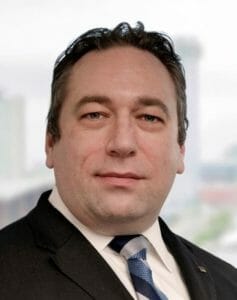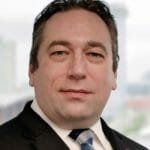
The U.S. District Court for the Middle District of Tennessee recently issued a number of rulings interpreting the federal False Claims Act (FCA) and its state law counterparts relevant to long-term care facilities.
The latest of these decisions examined the applicability of the federal Anti-Kickback Statute (AKS) to services paid for by long-term care residents on Medicaid as incurred medical expenses (IMEs) using their own funds. The court’s reasoning should serve as a warning to providers that facilitate the delivery of non-covered services to Medicaid patients.
Compliance with federal and state healthcare regulations may be prudent even when providing services that the applicable state Medicaid program does not cover.
Incurred medical expenses
The medical services covered by Medicaid vary by state. For example, many state Medicaid programs do not cover non-emergency adult dental care.
To help elderly Medicaid patients obtain needed, non-covered services, federal regulations allow Medicaid long-term care patients to deduct IMEs from their income for purposes of calculating their required contribution to payments for the long-term care services that Medicaid does cover. Accordingly, a patient can use their money to pay for a non-covered service instead of contributing that amount toward the bill from the long-term care facility.
When a Medicaid long-term care patient has income and elects to use it for a non-covered service, the patient likely will have less money to contribute toward their portion of the long-term care cost.
In this scenario, the state Medicaid program may need to pay more toward that patient’s long-term care bill than if the patient did not pay for the IME. States may review and approve requests for IME deductions.
The Folse Case
On November 22, 2017, Gregory Folse, a competitor of Care Services Management (CSM), filed a whistleblower complaint against CSM and several other entities. Folse alleged, in part, that CSM’s business model for providing non-emergency dental services to long-term care residents resulted in illegal kickbacks to the long-term care providers.
On March 13, 2018, the United States declined to intervene. Three years later, Tennessee and Louisiana filed a joint Complaint in Intervention under their state corollaries to the federal FCA alleging two separate fraud schemes, including the alleged kickback scheme between CSM and the long-term care facilities with which it contracted to provide dental services.
The states maintained that they received “invoices” characterized as “Request[s] for [IME] Approval” from CSM, and these were false claims for payment because of CSM’s violations of the AKS.
The defendants filed numerous motions to dismiss, which the court denied. The most important question the court addressed may have been whether the federal AKS applied to the non-emergency dental services at all.
Applicability of the Anti-Kickback Statute to IME payments
The court began its analysis with the four elements of the AKS:
1. The defendant solicited or received any remuneration including any kickback or bribe, directly or indirectly, overtly or covertly, in cash or in kind, to any person
2. That the remuneration was solicited or received to induce such person to refer an individual to a person for furnishing or arranging of an item or service
3. That the item or service was one for which payment may be made in whole or in part under a federal healthcare program
4. That the defendant acted knowingly and willfully.
The court addressed the third prong first, recognizing that if the plaintiff’s allegations did not satisfy that requirement, nothing else mattered.
The court recognized that the AKS only governs claims paid for, in whole or in part, by the federal government. Although Tennessee and Louisiana acknowledged that their Medicaid programs do not cover most non-emergency adult dental services, the court ruled that the services provided were paid in whole or in part under a federal healthcare program. The court offered two reasons for this conclusion.
First, the court maintained that the Medicaid program effectively paid for the dental services because “the IME system is not simply about reducing individual patients’ healthcare liabilities but also increasing the Medicaid program’s payments on behalf of that beneficiary.”
Second, the court relied on the AKS’s definition of “federal healthcare program,” which states that the statute covers any federally funded program “that provides health benefits, whether directly, through insurance, or otherwise.”
The court reasoned that “the IME program is a mechanism for using federal funds to provide healthcare” and that the AKS does not distinguish between covered services and non-covered services paid for by the patient as IMEs. Employing this rationale, the court ruled that the states had sufficiently pled the third element of the AKS.
Potential impact of Folse
The Folse decision allows a state to expressly decline covering a healthcare service under its Medicaid plan yet regulate the provision of that service via enforcement of the federal AKS. The ruling appears to be unprecedented, and the court cites no other cases to support its conclusion on this issue. It also seems inconsistent with other federal law and cases stating that IME money is not federal money and that “not covered under the state plan” means “not paid for by the state Medicaid program.”
Folse has obvious implications for long-term care providers seeking uncovered care for their residents. Under Folse, agreements through which providers attempt to secure access to non-covered services for their Medicaid residents will be subject to federal and state scrutiny under the AKS, the Stark Law and other statutes.
Providers should also know their medical necessity determinations and billing practices may also be subject to enforcement actions, even for uncovered services.
Conclusion
The IME process applies to a limited subset of healthcare services, but Folse has substantial implications for healthcare providers in those industry segments. It is unclear what other consequences the court’s application of the AKS may have in other sectors. Long-term care providers, other healthcare providers, and their counsel should monitor this case and how any other courts may treat this decision.
Chris Sabis heads Sherrard Roe Voigt & Harbison’s Government Compliance & Investigations group and is a member of the firm’s Litigation and Healthcare practices. Before joining SRVH, Chris served nearly a decade as an Assistant United States Attorney in the Middle District of Tennessee. He is a Rule 31 Listed General Civil Mediator by the Tennessee Supreme Court, earned his J.D. at Georgetown University Law Center, and graduated magna cum laude from the University of Rochester.
The opinions expressed in McKnight’s Long-Term Care News guest submissions are the author’s and are not necessarily those of McKnight’s Long-Term Care News or its editors.




